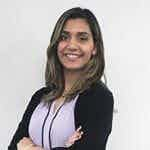Announcing the Winners of The Expert Institute’s 2017 Scholarships!
The Expert Institute’s 2017 Legal Blog Post Writing Contest and our Healthcare and Life Sciences Scholarship have officially come to a close! Every year, we offer tenacious law and healthcare students the opportunity to write a blog post demonstrating their ability to educate, persuade, and participate in a broader legal discourse with their peers. The
The Expert Institute’s 2017 Legal Blog Post Writing Contest and our Healthcare and Life Sciences Scholarship have officially come to a close! Every year, we offer tenacious law and healthcare students the opportunity to write a blog post demonstrating their ability to educate, persuade, and participate in a broader legal discourse with their peers. The prompt for our Legal Blog Post Writing Contest asked J.D. candidates to discuss any topic in litigation involving expert witnesses. We sought clear, effective, and entertaining pieces that demonstrated thoughtful research and original approach. The scope of the Healthcare and Life Sciences Scholarship centered on the relationship between healthcare / life science professionals and the American justice system.
We want to extend our sincerest thanks to all the students who participated in this year’s contests. We saw a large increase in submissions this year, and read hundreds of outstanding blog posts. Although selecting winners is always a challenge, the winning applicants listed below truly deserve recognition for their thoughtful and well-crafted efforts.
Both the Legal Blog Post Writing Contest as well as the Healthcare and Life Sciences Scholarship are now accepting applications for 2018, and we look forward to continuing our support of students in both law and healthcare for years to come.
We congratulate the accomplished students who have been awarded this year’s winners!
Legal Blog Post Writing Contest
1st Place – Samuel Seiniger, “A Market Solution to the ‘Hired Gun’ Problem”
Samuel Seiniger is a JD candidate at the Berkeley School of Law. Samuel claims there is a solution to the ‘hired gun’ bias associated with expert witnesses. He argues that greatly expanding the expert market will provide attorneys with adequate choice to select witnesses of integrity, rather than those who act simply as the mouthpiece for the council that hired them.
2nd Place – Nadia Eckardt (Neuroscience as a Courtroom Tool)
Nadia is a J.D. candidate at The University of Washington, School of Law. Nadia argues there is an uneven application of neuroscience and neurology expert witness testimony in civil versus criminal contexts, such that the legal system has become more accepting of neuroscience as justification to punish rather than mitigate. She notes that statistics and personal stories can lead a jury to such confirmation bias.
Katie is a J.D. candidate at Loyola University Chicago School of Law. Katie discusses the seminal role that expert witnesses play in the contemporary legal system. She argues that we must trust in the participation of experts as an essential component of the adversarial system because truth is neither presented nor is it told; rather, it is uncovered and observed by the fact finder.
Healthcare and Life Sciences Scholarship
Winner – Kendall Bielak, (Informed Consent)
Kendall Bielak is an M.D. candidate at the University of Virginia School of Medicine. Kendall argues that the conventions of informed consent are flawed because they focus more on protecting physicians from malpractice suits rather than offering patient preference. She calls for the proliferation of the subjective standard – a method of informed consent that emphasizes shared decision making between physician and patient, patient individuality, and patient autonomy.
About the author
Victoria Negron
Victoria Negron has extensive experience in journalism and thought leadership in the legal space, with a background crafting content, whitepapers, webinars, and current event articles pertaining to the role of expert witnesses in complex litigation matters. She is a skilled professional specializing in B2B product marketing and content marketing. Currently, she serves as an Enterprise Product Marketing Manager at Postman, and previously held the position of Technical Product Marketing Manager at Palantir Technologies, where she developed her skills in launch strategies, go-to-market strategy, and competitive analysis.
Her expertise in content marketing was further refined during her tenure at the Expert Institute, where she progressed from a Marketing Writer to Senior Content Marketing Manager, and eventually to Associate Director of Content & Product Marketing. In these roles, she honed her abilities in digital marketing, SEO, content strategy, and thought leadership.
Educationally, Victoria holds a Master of Business Administration from the University of Florida - Warrington College of Business and a Bachelor of Arts in Literature, Art, and Hispanic Studies from Hamilton College. Her diverse educational background and professional experience have equipped her with a robust skill set in product marketing, content development, and strategic marketing initiatives.
A Sample Voir Dire: How To Qualify An Expert Witness
Download free white paperChallenging Opposing Experts: Advanced Research Techniques
Download free white paperCross Examining Expert Witnesses: The Ultimate Guide
Download free white paper
Subscribe to our newsletter
Join our newsletter to stay up to date on legal news, insights and product updates from Expert Institute.



